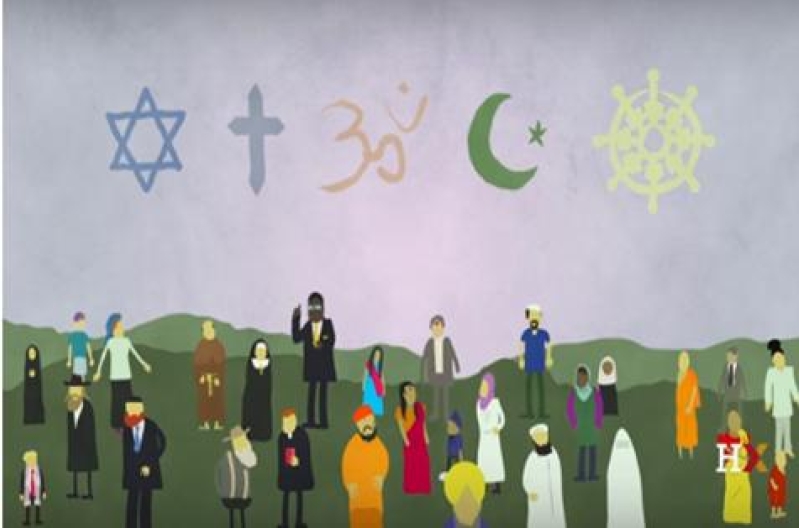
"World Religions Through Their Scriptures," Harvard Divinity School's newest online course, launches March 1, with a goals of opening dialogues and changing the world. Religious literacy, in modern terms, now requires acknowledging that faith communities are internally diverse and always evolving, said Diane Moore, lead organizer of the online course and director of Harvard Divinity School's Religious Literacy Project.
The course assembles Harvard's leading scholars in the world's major religions: Christianity, Judaism, Buddhism, Hinduism and Islam.
Religious literacy is generally tied to education level and comfort discussing religion with family and friends, according to a 2010 analysis by Pew Research Center.
Religious literacy also involves being able to look at a headline about November's ISIS-led attacks in Paris or evangelical Christian support for presidential candidate Donald Trump and know that no single narrative or episode can encapsulate an entire religion, said Moore.
"I'm eager to provide opportunities to complicate people's understanding of religion," she told Desert News. "We want to challenge people's assumption that religions are either all good or all bad."
Atheists and other non-believers actually scored higher than people of faith on the religious knowledge test used in Pew's research. Researchers reasoned this was partially due to this group, on average, having more advanced degrees than members of faith communities. Atheists and agnostics answered an average of 20.9 questions correctly out of 32, compared to 20.5 for Jews, 20.3 for Mormons, 17.6 for white evangelical Protestants and 15.8 for white mainline Protestants, Pew reported.
Quizzes designed to test religious literacy, such as the one Pew offers, often focus on general trivia, such as which faith group celebrates Ramadan (Muslims) or when the Jewish Sabbath begins (Friday night.)
Facts such as these do have a place in Harvard's online course, but people who sign-up to earn higher scores on these tests will get a lot more than they bargained for, Moore said.
"We want to give people the tools to think in different ways," she said.
Moore said the underpinnings of the course will challenge the idea that religious authority is absolutely vested in a single view.
The goal of the course is to remind and teach people that it is unfair and inaccurate to go to someone else's religious scripture, pick out one item and then communicate, "This is what this religion means."
Moore and her team at the Harvard Literacy Project predict that as many as 50,000 people from around the world will enroll in the new course.
Starting on March 1, participants will have an opportunity each week to see two presentations and join a Google-hangout discussion with other people taking the course. Those who pay for each segment - they cost $50 - can earn a certificate of achievement at the end of the six-month program.
The course is free for those who audit the class, and sign-ups are opened at the beginning of each month-long segment.







